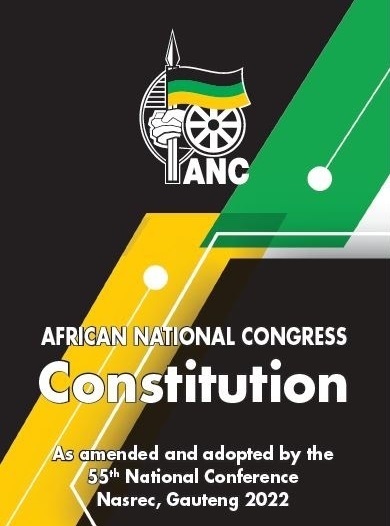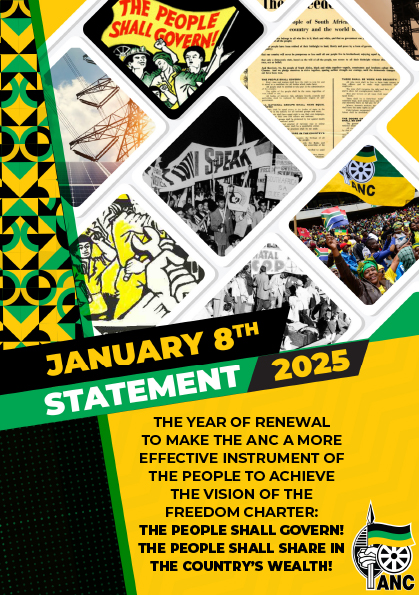Programme Director: Cllr Xhonxa
Clergy : led by Bishop Leleki
King Dalimvula and all traditional leaders
The Mayor of our Host City
MEC for Sports, Recreation, Arts and Culture
Mayors , MPs, MPLs and all CLLRs
Chairperson of the National Arts Foundation
CEO of the National Arts Foundation and all CEOs present
Head of Department for DSRAC
VC and Rhodes community
Bantu base Makana
Esteemed traditional leaders, respected clergy members, distinguish academics, representatives from our wonderful NGOs, cherished artists, performers, and most importantly, my dear people of the Eastern Cape and National Arts Festival Revellers, good evening to all of you. Mholweni e Phondweni.
I stand here humbled, and invigorated by the creative spirit of our community, at this iconic event – the 49th edition of the Makhanda National Arts Festival. I have asked the Provincial Police Commissioner to ensure high police visibility for the duration of this festival so that all visitors and participants can be safe and feel safe. I want us to have an incident free 49th edition of National Arts Festival which we must all enjoy with our families and friends without worrying about being robbed or attacked by criminal elements. So the police will be with you for the duration of the festival, to keep you safe.
Programme Director, our province, the Eastern Cape, has a rich and exciting history. The story of our people, struggles, triumphs, and heritage has been painted on the frontier’s canvas.
A frontier that has been a theatre of human experiences, bristling with tales of resilience and diversity. It has watched over us, an eternal backdrop to the melding of cultures, the evolution of our societies, and the progression of our shared human experience.
Let us take a moment to honour our traditional leaders, the custodians of our cultural heritage. Through centuries, they have preserved the unique legacy of the Xhosa people, ensuring the endurance of our traditions, stories, and languages. We have themed this year’s festival: Celebrating the Life and Legacy of Nkosi Jongumsobomvu Maqoma. Chief Maqoma was one of the great leaders of the wars of resistance which were waged by Xhosa and Khoi people to protect our land, livestock, and independence against colonialists.
When we talk about the history of land dispossession in South Africa, the Eastern Cape should lead that conversation because it is the only province where nine wars of resistance were fought in 100 years (from 1779 to 1879). Chief Maqoma led three of the nine wars of resistance that took -place in our province back then, hence he was praised for bravery by Dr Walter Rubusana in his book Zem’ kinkomo magwalandini. I challenge the creative sector in the Eastern Cape to tell the story of warriors such as Chief Jongumsobomvu Maqoma and Makhanda. As government we will definitely provide financial support for such projects. Currently on our TV screens we are watching a wonderful production of the film titled: Shaka iLembe, which tells the story of the late warrior Zulu King to world audiences. We have such stories too in the Eastern Cape and it is us who must tell them.
Programme Director, our stories do not exist in isolation. We acknowledge the European influences that have shaped us, mainly through the missionaries who have contributed significantly to the educational landscape of our region. The creation of academic institutions like Rhodes, Fort Hare, and the various training colleges stand testament to their contribution.
Art and culture have always been intertwined, dancing in unison, echoing our values, histories, and aspirations. They are the soul of our society, acting as a prism through which the world sees us, and we see ourselves.
Each brushstroke, every note played, and every story told contributes to the vibrant tapestry of our shared identity. The role of religions and settlers has indelibly influenced this tapestry, shaping our societies, broadening our perspectives, and enriching our cultural panorama. Our shared experience includes contemporary cultures, those driven by democratic values and individual rights.
In our progressive society, we must acknowledge the LBGQ+ community. These groups, once marginalised, are now recognised as an integral part of our cultural landscape, their voices add depth and complexity to our societal symphony. Their courage and tenacity have set a precedent for inclusivity and acceptance.
Today, culture is not a static concept bound by time and tradition. Instead, it is dynamic, transformative, expanding with the creative spirit of our youth and the wisdom of our elders. And it is here, in the fusion of tradition and innovation, that we find the essence of a cultural revolution.
In this digital age, where technology and artificial intelligence drive change, we see an opportunity to innovate. Technology is not a threat to our culture, instead, it’s a tool that can help us preserve, showcase, and share our rich cultural heritage.
And so, we look to the future with a vision of partnership. Government, businesses, NGOs, traditional leaders, religious leaders, academic institutions, and creative artists and performers must unite. Together, we can support the creative economy, enrich the lives of our community, and ensure the vibrancy and relevance of our cultural heritage.
Our cultural backbone has always been our community, and it is through the community that we see the future of our culture. Let us use the Makhanda National Arts Festival as a beacon, showcasing the best of our artists and performers and, in doing so, reinforcing the strength and unity of our cultural identity.
To our artists, we owe an immense debt of gratitude. There will never be a National Arts Festival without artists. This festival has always been a platform for you to showcase your talent without intermediaries, without the shadows of commercial exploitation.
Today, you are performers and ambassadors of our shared cultural heritage. You have been instrumental in transforming our society and making it a vibrant space for the artistic expression of ideas and emotions. Your creativity continues to shape, inspire, and push the boundaries of our shared cultural landscape. As we gather here tonight to indulge on the work of our artists let us remember a legendary artist, uMama uLatozi “Madosini” Mpahleni whom we lost earlier this year. We want to thank Rhodes University for conferring her with the University’s highest honour, the Honorary Doctor of Music while she was still alive as a token of appreciation for her preservation of Xhosa traditional music.
Xa wayephefumla ngokuthwaliswa kwakhe isidaga yi Rhodes University u Dr Madosini wahambisa wathi: “Kangangoba ndinemincili yilento ndiyenzelweyo yi Rhodes University, ungasuke undibone sendikhala. Ndiziva ndingcangcazela, ndiphelelwa nangamandla ngenxa yovuyo olusentliziyweni yam. Bendingubani na mna, iqaba elingazange lawubona umnyango wesikolo? Noba ndingalala kobandayo, intliziyo yam ixolile ngento endiyenzelwe yi Rhodes University.” Lawo ngamazwi ekufanele akhuthaze i Rhodes University yenze njalo nakwabanye. Kufanele akhuthaze nee artists zanamhlanje ukuba zizimisele kwaye zizinikezele kwisiphiwo sazo. May the soul of Dr Madosini continue to rest in peace.
To our partners and sponsors, we extend our heartfelt thanks. Your continued support allows us to celebrate our heritage, provide a platform for our artists, and foster our region’s development. Your investment in our community goes far beyond monetary support; it underpins our shared belief in the power of culture and creativity as catalysts for change.
As government we have supported this year’s National Arts Festival generously by investing R13,680,000 million for the 2023 – 2024 financial year and that extends beyond the festival’s 11 days. This investment enables the infrastructural development needed for the continual evolution of this event. The investment also supports programmes that promote local artists such as:
The Creative City Project, in partnership with Makana Municipality; Sarah Baartman District Municipality; the European Union and Rhodes University which runs throughout the year.
Establishment of the ‘Makana Arts Academy’ which supports local theatre and dance groups, as well as visual artists and crafters, and funds an Art Teacher’s post at Ntsika Secondary School, Grahamstown.
Remix Project: made up of the Eastern Cape Showcase, the Theatre Showcase with ECPACC and the Fingo Festival.
Tickets to the value of R 300 000, 00 are made available to local community groups.
The Art Reach Initiative sees the extension of the Arts in the local prison and local schools.
Staging the ‘Masicule’ massed choir event in March, which sees nearly 800 choristers share a single stage.
Hosting the ‘Cinema Under the Stars’ project for the people of Grahamstown a couple of times during the year.
Lastly the NAF also has “Free Stages” at the Village Green and the Monument which creates an opportunity for emergent performers and musicians to showcase themselves at no cost during the festival.
All of what I have mentioned is a testament to our commitment to the arts, culture, and the development of our society.
Our media partners, local and international, with their ever-robust presence, further amplify our voices and carry the rhythm of the Makhanda National Arts Festival to the four corners of the world. With their support, we raise the flag of our province high on the global stage, inviting everyone to experience the rich tapestry of our culture and art.
In aligning with the World Fringe Alliance and the African Festival Network, we are connecting with global networks, sharing experiences, and learning from each other. This collaborative effort strengthens our global creative economy and allows us to reach a broader audience.
In conclusion, let us remember that culture is a living entity, evolving with the times and shaped by its young and old people. Today, we are not just celebrating the arts; we are celebrating our past, our present, and the promise of an inspiring future.
Let us come together, as a community, as a province, and as a nation to harness the power of our diversity and our shared heritage. Let us use this festival as a steppingstone to foster unity, inclusivity, and a shared sense of purpose. Let us continue to build a society where everyone, regardless of their background, feels valued and free to express their cultural identity. Together, let us shape a future that is reflective of all our people, a future built on the pillars of diversity, inclusivity, and mutual respect—a future where our culture and arts continue to thrive and inspire.
Let us enjoy this celebration of our shared heritage, our diverse voices, and our boundless creativity. May the spirit of the Makhanda National Arts Festival live on for generations to come.
Thank you.





